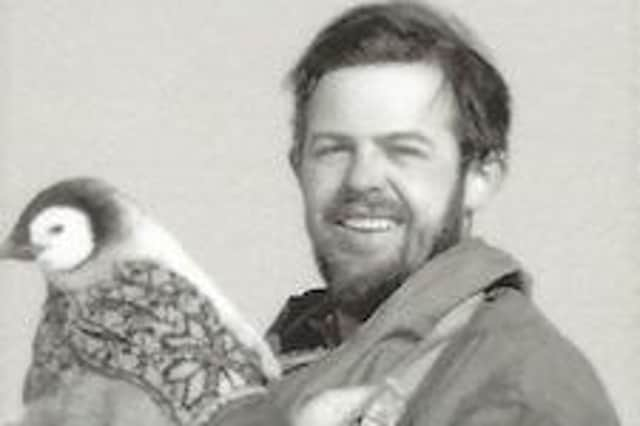Obituary: Professor Nelson Norman, consultant surgeon and remote healthcare pioneer


Professor Nelson Norman was an academic surgeon in Glasgow and Aberdeen whose early medical career with National Service began unexpectedly as medical officer at Halley Bay in Antarctica in 1959. This was before Antarctica became the current focus of climate change science and wildlife TV. He researched critical care while training as a general surgeon and then refocused in Aberdeen on the new specialism of remote healthcare in hostile environments. He established academic support for the new offshore oil and diving industry in Aberdeen at the University of Aberdeen and then Robert Gordon University. He developed training and medical support for British Antarctic Survey and was awarded the Polar Medal.
John Nelson Norman was born in Paisley in 1932. His father Alexander Norman was a Customs and Excise Officer who had survived the Battle of the Somme and his mother was Winifred. He attended Paisley Grammar and a burst appendix aged 12 gave him the notion of a surgical career.
Advertisement
Hide AdAdvertisement
Hide AdHe graduated in Medicine from the University of Glasgow in 1957 and after his house jobs at the Victoria Infirmary he began National Service in the Royal Army Medical Corps. He volunteered for service as medical officer at Halley Bay, Antarctica. He did an ice shelf survey, collected Emperor Penguin Embryos for Sir Raymond Priestly and carried out his own research on cold physiology for an MD thesis.
Dr Norman then returned to the University of Glasgow Department of Surgery under Sir Charles Illingworth who was researching the use of Hyperbaric Oxygen in Glasgow for critical care, carbon monoxide poisoning and treatment of caisson workers building the Clyde Tunnel. He completed his PhD in critical care physiology and married his wife Morag in 1964. He completed his surgical training with Fellowships at the Glasgow and Edinburgh Royal Colleges of Surgeons by 1967. Despite three medical doctorates he then followed the ancient surgical tradition and reverted to “Mr Nelson Norman”.
In 1970 Mr Norman was appointed Reader in Surgery at the University of Aberdeen and worked at Foresterhill as a Consultant Surgeon teaching medical and nursing students. He was an academic supervisor for many surgical research fellows from around the world in critical care and graduated with his fourth Doctor of Science with the University of Aberdeen after submitting large body of surgical science papers in 1976.
During the 1970s the offshore oil and gas industry was centred in Aberdeen and there were accidents, illnesses and fatalities from the rush to push engineering and diving boundaries. An academic response was required to understand cold exposure, diving medicine and remote healthcare support. Norman’s Antarctic experience, hyperbaric medicine and critical care physiology all came together when he founded The Institute of Offshore and Environmental Medicine within the University of Aberdeen Department of Surgery. He engaged the oil industry for funding and set up medical training and support companies to support the oil industry and fund research. Mr Norman, the surgeon, then became the Professor of Environmental Medicine in 1976 at the University of Aberdeen.
Mountain hypothermia remained an interest and re-warming methods were debated in mountain rescue teams and A&E units. He set up the Morrone laboratory on the mountain near Braemar for field research on hypothermia. The field station unit came from the Antarctic Survey , the construction was done by the army and Braemar mountain rescue team. The researchers and projects were in place and it was opened by Prince Philip.
However, his department at the University of Aberdeen fell foul of university funding cuts during the 1980s. The strategic priority for the new Principal of the UK’s oldest medical school became deciding which departments to close to save money, rather than promoting activities generating medical advances and jobs.
Occupational Medicine has always been a Cinderella speciality outside the NHS and the choice was made to focus on research funded by the pharmaceutical industry rather than the local oil industry which was generating wealth and therefore health within the local community.
The Morrone mountain field station was closed before any research was completed. Prof Nelson Norman resigned his University of Aberdeen post and Aberdeen Royal Infirmary lost a talented academic consultant surgeon.
Advertisement
Hide AdAdvertisement
Hide AdThe closure of the Morrone field station remained his greatest regret and career low point. 38 years later Remote healthcare and Telemedicine have become core topics in NHS Scotland.
The new Robert Gordon University had always had a larger engineering department than its ancient brother and was already involved in offshore survival training.
Fortunately, his talents were recognised by Robert Gordon University and he moved to concentrate on remote medicine.
He worked with the University of Newfoundland, Canada to develop their Telecare systems.
He developed the medical training and support systems for doctors working in Antarctica and was an early advocate of remote telecare to support doctors, nurses and paramedics in hostile remote environments.
He was Professor of Community Medicine in the United Arab Emirates for 5 years and continued to support many young researchers.
He never “retired” from his passion for remote healthcare.
Professor Nelson Norman was a man who was ahead of his time who had been inspired by Antarctica and had a big vision for remote healthcare, which is now established NHS policy. His proudest moment was being awarded the Polar Medal in 1999.
John Nelson Norman’s wife Morag was his greatest support and predeceased him after 57 years together. He is survived by their daughter Sarah-Jane and grandson Scott Mackie.
Obituaries
Advertisement
Hide AdAdvertisement
Hide AdIf you would like to submit an obituary (800-1000 words preferred, with jpeg image), or have a suggestion for a subject, contact [email protected]
Subscribe
Subscribe at www.scotsman.com/subscriptions
Comments
Want to join the conversation? Please or to comment on this article.